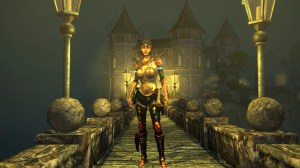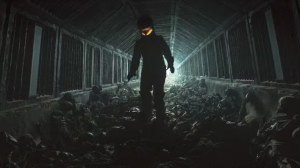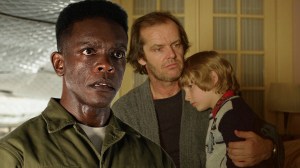Beginning this Friday, Star Trek fans can dive into the franchise’s history with the Brian Volk-Weiss-directed ten-part docuseries The Center Seat: 55 Years of Star Trek on The History Channel. Featuring Star Trek: The Next Generation star Gates McFadden as narrator and executive producer, The Center Seat promises to reveal rare details about Star Trek’s beginnings, where it has gone over the course of the past 55 years, and where it could be headed in the future. Each episode of The Center Seat focuses on a different chapter in the sci-fi franchise’s history, beginning with the creation and production of Star Trek: The Original Series at Lucille Ball’s production studio Desilu before covering more recent film and television projects. Even oft-forgotten chapters of Star Trek history like Star Trek: The Animated Series and Star Trek: Phase II get covered.
Videos by ComicBook.com
Ahead of The Center Seat‘s debut, Volk-Weiss chatted with ComicBook.com over the phone about what it was like diving into Star Trek history and what fans should expect from the show. Here’s what he had to say.
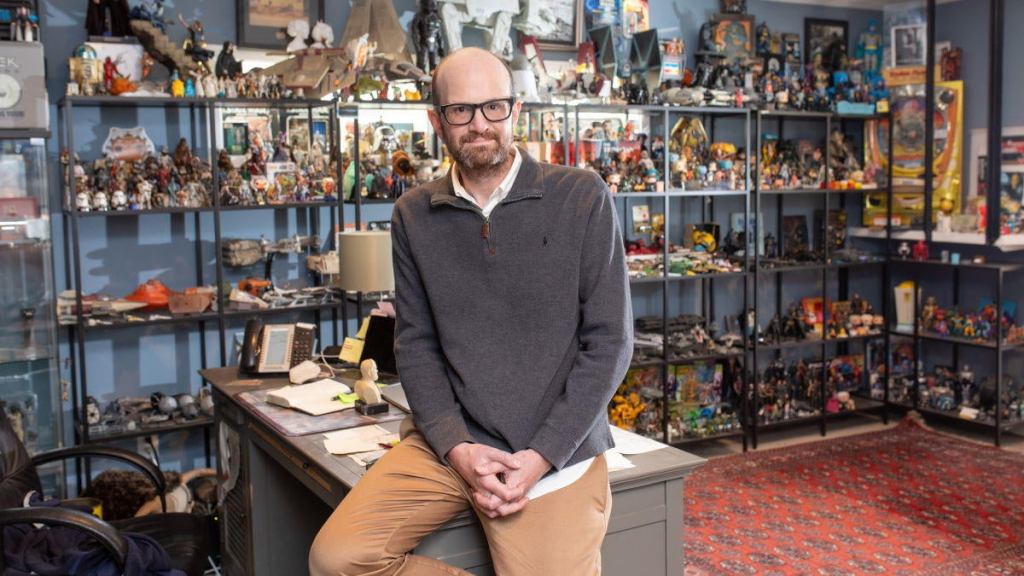
For starters, for those who aren’t familiar with your background, what’s your relationship to Star Trek? Were you one of those that grew up watching it as a kid, or did you come to it later?
Brian Volk-Weiss: I definitely grew up watching it as a kid. That’s an understatement. I think it was on, probably four or five days out of every week. It was the movies, though, that primarily got me, when I think of Star Trek, and everybody’s different. It’s the same thing with James Bond. Everybody has their Bond, and it’s usually whoever Bond was when you’re 12, that’s probably who your Bond is forever. Not always, but anyway, it’s the same thing with Star Trek, I think. My Star Trek is Star Trek I through Generations, I guess I would say. It really should just be Star Trek VI, but I’ll give Generations an honorable mention.
Safe to say then that Kirk is your pick for best Star Trek captain?
Yes. And that’s the understatement of the millennium, but yes, Kirk is my pick.
You previously put together a documentary for Star Trek’s 50th anniversary called 50 Years of Star Trek for History. What did you want to do with The Center Seat that you didn’t accomplish with that previous documentary?
Well, that’s probably a tougher question to answer than you expected. But the answer is quite a bit. Here’s the thing a lot of people don’t understand about the television business, or whatever, is producers get typecast just like actors. And when we made the 50th anniversary, it was before Toys That Made Us came out. And Toys That Made Us, for our company, really was like the B.C./A.D. moment. Everything we did before Toys That Made Us is completely different in every way possible than what we did after Toys That Made Us.
There were basically two issues with the 50th anniversary as it relates to us making it. The first was, it was before Toys That Made Us. And I understand this. I get it. If I was in anybody else’s shoes I would have been exactly the same way. But we didn’t get the long leash, to put it that way, that we have now. So basically back then, our primary business was stand-up comedy. So it was kind of like, wait, why is this company that makes standup comedy doing a Star Trek show?
It’s been something on my mind since I was probably 12 to 15 years old, it’s always really bothered me that Lucille Ball got no credit for Star Trek. If you read the books about Star Trek, it’s a really interesting phenomenon I’ve never seen with any other franchise. The books about the making of Star Trek are much more truthful and blunt than the documentaries usually are about the making of Star Trek. So one of the things that’s very obvious in the books is that if Gene Roddenberry is the father of Star Trek, it’s very obvious Lucille Ball is the mother of Star Trek, and that’s in every book you’ll ever read, but it’s usually not covered in documentaries.
So that’s an example of something we were able to hit very hard as it relates to the facts and the details of what Lucille Ball actually did. A lot of people think she “saved Star Trek.” She didn’t save Star Trek. If every artistic endeavor is creative and business, without her business there’s no Star Trek. So we wanted to give her credit for that. And that’s something I couldn’t do five, six years ago. So that’s the first thing.
The second thing is, it’s much harder to tell a story about 50 years in two hours — which really isn’t two hours because of commercials. It’s really only about an-hour-38 — then it is to do 55 years over 10 hours. So just by the nature that we have 10 hours to tell the story, I mean, it changes everything. So, that’s the two reasons.
Now that you’ve had more time to dig into that full 55-year history, which era of Star Trek did you find the most interesting to dig into? Was it the beginning, as you’ve touched on, or was it the movies because you’re such a big fan of those? Or did something else surprise you?
I would say, jokingly, there were episodes that I have a Ph.D. in. Then there’s, I’ve got to be honest with you, I didn’t even have a first-grade degree in Star Trek: The Animated Series. I didn’t know anything about it. So I’d only seen, probably, five or six episodes. So every single thing I learned about the animated series was exciting and new, whereas, with Star Trek II, or Star Trek III, or Star Trek IV, or whatever, I knew most of that, though, we did get a lot.
I mean, we interviewed Kirstie Alley. I will never look at Star Trek II the same. That was a two, two-and-a-half-hour interview, and she easily said something that visibly made my jaw drop probably seven or eight times. So I did learn a lot of new stuff about what I love
But like I said, The Animated Series? That was all new information.d
I was going to ask which interview surprised you the most, but it sounds like you may have answered that. Was it the Kirstie Alley one?
Yeah. I mean, her interview was something else. I’ll give you an example. One of the things she said to me — because she knew I was a fan; I’ve conservatively seen the film three or four hundred times — and I had told her that before the interview started. And she was going on and on about how, when she came to Hollywood, she wanted to be Vivien Leigh. She was inspired by Vivien Leigh to become an actress. And we were talking and everything, and she was like, “Yeah, I didn’t completely understand what a Vulcan was. When I understood what a Vulcan was I realized it was the complete opposite of Vivien Leigh. So I kept trying to do things to be more glamorous, even though Vulcans aren’t glamorous.” And I’m like, “Oh really?” And she’s like, “Brian, you didn’t notice that at the beginning of the movie I had my hair back and no makeup, and by the end of the movie my hair’s flowing down my back and I’m wearing tons of makeup? You never noticed that in your three or four hundred times of watching the movie?”
I’m like, “I’ve got to be honest with you Kristie, no.” She goes, “You never noticed there’s a scene in an elevator?” (That’s her words, not mine. I know it’s a turbolift. I don’t want to get in trouble with anybody.) She’s like, “You never noticed that there’s a scene in an elevator where I’m wearing a bathrobe? Did you ever notice any other bathrobes in all of Star Trek?” I’m like, “I’ve got to be honest with you. I never thought of that.” And so it was stuff like that, the reason why she’s in a bathrobe, the reason why she’s wearing eyeliner at Spock’s funeral, something a Vulcan would never do, but I never noticed it. So there was a lot of stuff like that.
Her interview was bonkers. Denise Crosby’s was amazing. Even Nicholas Meyer, who I’d interviewed before. We got so much good information, and funny stories, and some pretty powerful stories, too.
Well, I’m pretty sure I’m never going to be able to watch that turbolift scene in Wrath of Khan the same way again after this.
Well, I don’t mean to give a spoiler, I hope I don’t get in trouble, but if you watch the trailer [for , you’ll see Kirstie Alley say, “Oh, they offered me less for Star Trek III than Star Trek II.” And that’s why she’s not in Star Trek III. What’s not in the trailer is the reason they offered her less money, and this is where I’ll leave everybody in Star Trek suspense. I won’t give the actual reason, but she did say the reason she got offered less is probably directly tied to what happened in the turbolift scene.
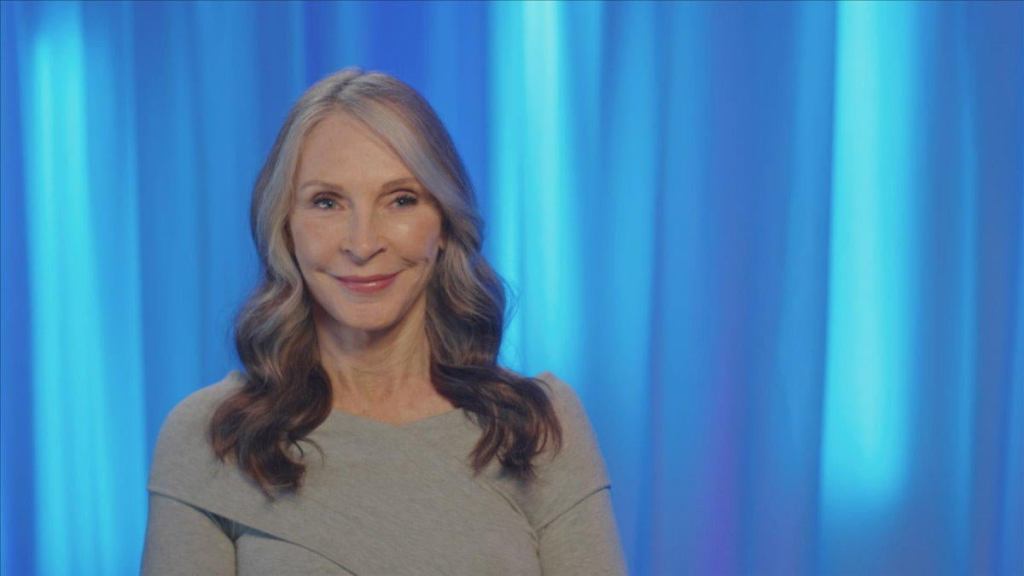
Something else that’s different about this project is that you’ve got a lot of involvement from Gates McFadden, who played Dr. Beverly Crusher in Star Trek: The Next Generation. What has her involvement as a producer and as narrator brought to the project?
To use an expression that I think gets thrown around too easily, and is usually not true, but in this case, it’s completely true, she was a game-changer. To put it very bluntly, we wouldn’t have Brent Spiner, we wouldn’t have Kate Mulgrew, we wouldn’t have had Rick Berman without her. But I’ll tell you the interesting thing — I hope she doesn’t mind me saying this — but the contract we did with her, we do a podcast with her called , and I knew her because of that. So I just thought to myself, “Listen, I already know her. I already like working with her, she’s awesome.” I just thought it would be cool.
I’ve never made a documentary before with somebody who was there for some of it. So our contract with her, first of all, in the beginning, it had nothing to do with voiceover. That came later. My least favorite thing to do in my job is to figure out who’s doing the voiceover. So because of that, I procrastinate, so I literally make the decision at the last minute. But we have a page and a half contract with her, and basically, she didn’t have to do anything. All I really wanted her to do was watch rough cuts and give us her opinion, and give us her notes and everything like that, and give us guidance during pre-production. There was nothing in the contract saying she had to call all her friends. There was nothing in there about that. I mean, she took it upon herself to do it, and she was very passionate.
And like I said, Rick Berman, we would not have gotten him in a billion years without her. It wasn’t easy for her either. You have to understand, almost all of these actors, creatives, executives, producers, whatever, they’ve been talking about this for 20 to 40 years. Walter Koenig has been talking about this for 50 years or more. So a lot of them, and I don’t blame them, are sick about talking about it. The other thing is, during COVID everybody was making documentaries. When we did the 50th anniversary, a lot of the people we interviewed, they probably were doing between zero and maybe one documentary a year. Half the people we called [for The Center Seat] had already been interviewed for other Star Trek docs within the week. So Gates was imperative to cutting through all that.
And then, like I said, once we got to the point where everybody was yelling at me, we had to start recording the VO, it just made sense to use Gates. I mean, A, she’s got a great voice. B, she’s very respected. And C, she’s been an invaluable part of the team and it was her series as much as mine. So it just all made sense. And I think it all worked out.
[At this point, we go on our tangent discussing . Remembering that this is ComicBook.com brings something else to Volk-Weiss’s mind.]
Can I do a plug for a comic book that I have nothing to do with, but I’m just so excited about it? It is still related to Center Seat, so I’m not completely going off-topic. Star Trek, Year Five. I just started reading it. I always wait for compendiums, and I actually like for all the compendiums to be out, but it is the best Star Trek I have seen since at least 2009. I’m actually one of the few people my age who love that movie. Love it. I mean, love it. I love J.J. Abrams’ first one. But [Star Trek: Year Five] really is the strongest Star Trek writing I would say since the current movies.
I don’t know how it ends, and I hear the ending’s wonderful. So please, no spoilers.
For my last question, since you were talking about how The Toys That Made Us changed so much for your company, is there a particular Star Trek toy that stands out in your mind? Either because it’s objectively the best or for more sentimental, personal reasons?
That is very easy. It’s one of the pieces in my collection, which is literally thousands and thousands of pieces. It’s my original Constitution Refit Model Enterprise Die-Cast. It’s about an inch and a half long. It’s one of the oldest pieces in my collection. It’s one of the very few pieces I have that’s actually from my childhood. I literally painted the impulse engine, I put lights under the cells, I painted the deflector dish all before 10 years old. So that, despite the fact that I conservatively have three or 400 Star Trek pieces, that would absolutely be my favorite.
What do you think? Let us know in the comments. The Center Seat premieres on The History Channel on November 5th. This interview has been modified and edited for length and flow.

